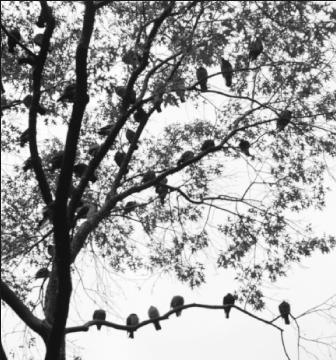By Kristen V. Brown
Scarce times may be ahead for New York City’s most prominent bird. In an effort to control the growing pigeon population, a new proposal by Brooklyn Councilmember Simcha Felder, if passed, will fine New Yorkers up to $1,000 for feeding their feathered friends.
“The uncontrolled pigeon population in New York City poses a threat to public health, infrastructure and overall quality of life,” Felder wrote in his initial report that introduced the bill on Nov. 12. The report explains that in 2004 the city’s 311 hotline received an average of 300 pigeon-related complaint calls per month.
Felder feels that the city’s large pigeon population — with each bird individually excreting about 25 pounds of droppings per year — is causing all kinds of problems for New York City. With pigeon oversight falling between the cracks of several state and city agencies, there is no one to accept accountability, Felder adds. He began crafting the legislation after receiving repeated complaints about droppings on the elevated train platforms in his district, which covers Ditmas Park, Borough Park, Midwood, Bensonhurst and Kensington.
Other cities with similar pigeon problems have instituted a wide array of programs to curb their bird problems. Just this year, Los Angeles began feeding pigeons an oral contraceptive in hopes of limiting the number of birds, as well as enforcing a ban on pigeon feeding. While pigeons’ lifespan in urban areas is significantly reduced, they also reproduce far more often — sometimes as often as six times a year, in comparison to a mere two in the wild.
In both London’s Trafalgar Square and Basel, Switzerland, curbs on pigeon feeding have been implemented; Basel’s birds have been halved as a result.
If passed, the new regulation would not only create fines for feeding pigeons, but also introduce birth control (OvoControl P, the same brand Los Angeles used), and create a city “pigeon czar” to regulate affairs concerning the birds. Additionally, Felder would like to reintroduce the hawk and falcon population in New York City — pigeons face no natural predators here — and experiment with robotic hawks, which cost up to $4,000 a pop.
Pigeons are not a native species to North America. They were first brought over by European settlers as domesticated birds. As a result, pigeons are not protected under the Federal Migratory Bird Act. That means removing pigeons from private property is permissible without need of a federal permit.
Felder also recommends more frequent trash collection and the installation of trash cans with smaller openings. In short, the plan is, first, to cut off the food supply, then, curb reproduction.
In Jackson Square, someone tried to rub out the “Not” in the “Please Do Not Feed Pigeons Or Squirrels” sign.
Several animal rights associations have actually voiced support for Councilmember Felder’s initiatives. On the day the councilmember issued his proposal to introduce a bill, the American Society for Prevention of Cruelty to Animals issued its own statement supporting Felder’s ideas.
“We do understand the reasoning,“ said Steve Musso, the A.S.P.C.A.’s chief of operations. “Our fear is that there are a large amount of pigeons in New York, and if it becomes large enough and New York City begins to feel the structural and health damages, they’ll take drastic actions.
“Our hopes are this will prevent the pigeon population from growing and New York City won’t take drastic action, which would be a large euthanasia,” Musso said.
New Yorkers, on the other hand, aren’t quite so sure about the idea, largely agreeing that the birds don’t really bother them.
“Why not kill the rats?” said Alyona Mindlin, 22, a photographer from Bushwick. “Pigeons are a city bird. I think the city should spend its time concerning itself with things that matter more. To be honest, I’m kind of happy with them here. I’d miss them if they were gone.”
Bryan Ohlson, a 27-year-old drummer from Harlem, agrees.
“I think there’s a lot of pigeons, but I don’t think it’s a problem,” he said. “They’re just eating and hanging out — I guess just like any New Yorker would.”
The legislation is currently being drafted by the city’s lawyers. According to Eric Kuo, a Felder spokesperson, the councilmember expects the legislation to be ready to present by the end of the year.




































